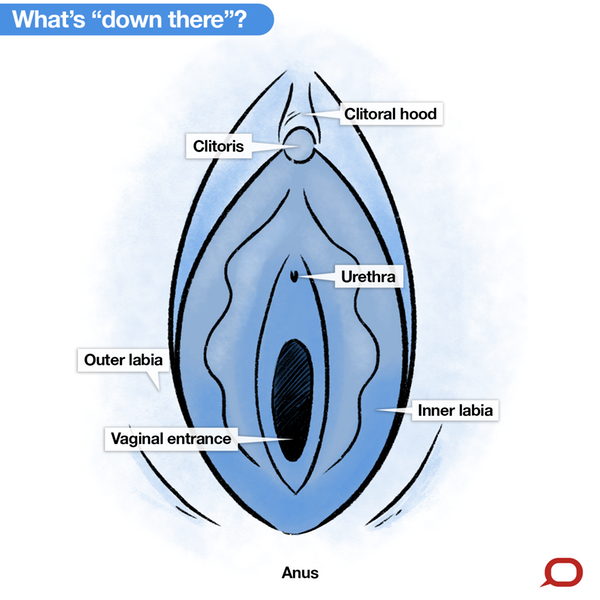
Is it normal to get sore or have pain after sex?
Sex should never hurt!
Hi! I only recently have gotten a boyfriend and have started having regular sex. After 2 or more days, it starts to get a bit sore down there. Is that normal? I just assumed it was pain from friction, but I don’t know if that’s right and I’ve never sought help because it’s a bit embarrassing!
Sandra, 17, in Sydney
To start with, sex shouldn’t hurt, and if it does, a good tip is to say “stop”, no matter what! The aftermath of sex also shouldn’t hurt – whether it’s two minutes, two hours or two days later....
Key points
- Sex should never hurt
- if it does, tell the person to stop
- get checked out by a GP or sexual health clinic to make sure it’s not something that needs to be treated – better safe than sorry.
Hi, and thanks for your question! You’re not alone in finding that sex isn’t always straightforward. By sex, I assume you mean intercourse. What I’m not sure about is where you mean by “down there”. In a woman’s body, down there is lots of places!

[ID: Technical illustration of a woman vagina]
To start with, sex shouldn’t hurt, and if it does, a good tip is to say “stop”, no matter what! The aftermath of sex also shouldn’t hurt – whether it’s two minutes, two hours or two days later.
Even very vigorous intercourse where there’s lots of friction should not actually hurt. It can happen if there’s not enough natural (or artificial) lubrication or if there’s some muscle tension in the vagina. Both of these can be signs of not being fully aroused (turned on) beforehand or during sex, or being a bit anxious about having sex.
Read more: Female sexual dysfunction or not knowing how to ask for what feels good?
A new partner or relationship can bring some anxiety for each person. It can affect the way a woman’s body (or a man’s) gets aroused and how comfortable sex feels. Good communication with your partner about what feels good is really helpful.
If you have background worry about sexually transmitted infections (STIs) or pregnancy, that can definitely affect enjoyment of sex. Getting armed with knowledge and equipment to prevent any unwanted consequences of sex should be a routine part of getting into a relationship for both parties.
The cause of your pain also depends on where it is – is it at the opening of the vagina, or other parts of the vulva? Is it related to peeing, and is it always in the same place?
Inflammation (redness and soreness) can cause pain – this could be from inside the vagina such as with a thrush infection (which is not sexually transmitted) or from the skin in the vulva (which could be from dermatitis or a skin condition).
Some STIs cause pain in the genital area, for example herpes (caused by the cold sore virus), but you would be likely to notice the sores as well. A common STI such as chlamydia often has no symptoms, but could cause pain higher up in the pelvic area or when you wee. A condition known as vulvodynia causes chronic pain, not just from having sex – it can also be triggered by the conditions mentioned above.
Read more: Health Check: what controls our sex drive? When and why do we feel like sex?
You deserve to be enjoying a happy and healthy sex life, and not feeling embarrassed about one of the most natural experiences in the world – even if it’s not always going right. It’s important you do get personal advice, since this could be something that needs treatment. It would be good to have a doctor or sexual health clinic check up, and this can all be done completely confidentially.
I Need to Know is an ongoing series for teens in search of reliable, confidential advice about life’s tricky questions. If you’re a teen, send us your questions about sex, drugs, health and relationships, and we’ll ask an expert to answer it for you.
If you’re a teenager and have a question you’d like answered by an expert, you can:
- email us at This email address is being protected from spambots. You need JavaScript enabled to view it.
- submit your question anonymously through Incogneato, or
- DM us on Instagram.
Please tell us your name (you can use a fake name if you don’t want to be identified), age and which city you live in. Send as many questions as you like! We won’t be able to answer every question, but we will do our best.![]()
Melissa Kang, Associate professor, University of Technology Sydney
- Created on .
- Last updated on .